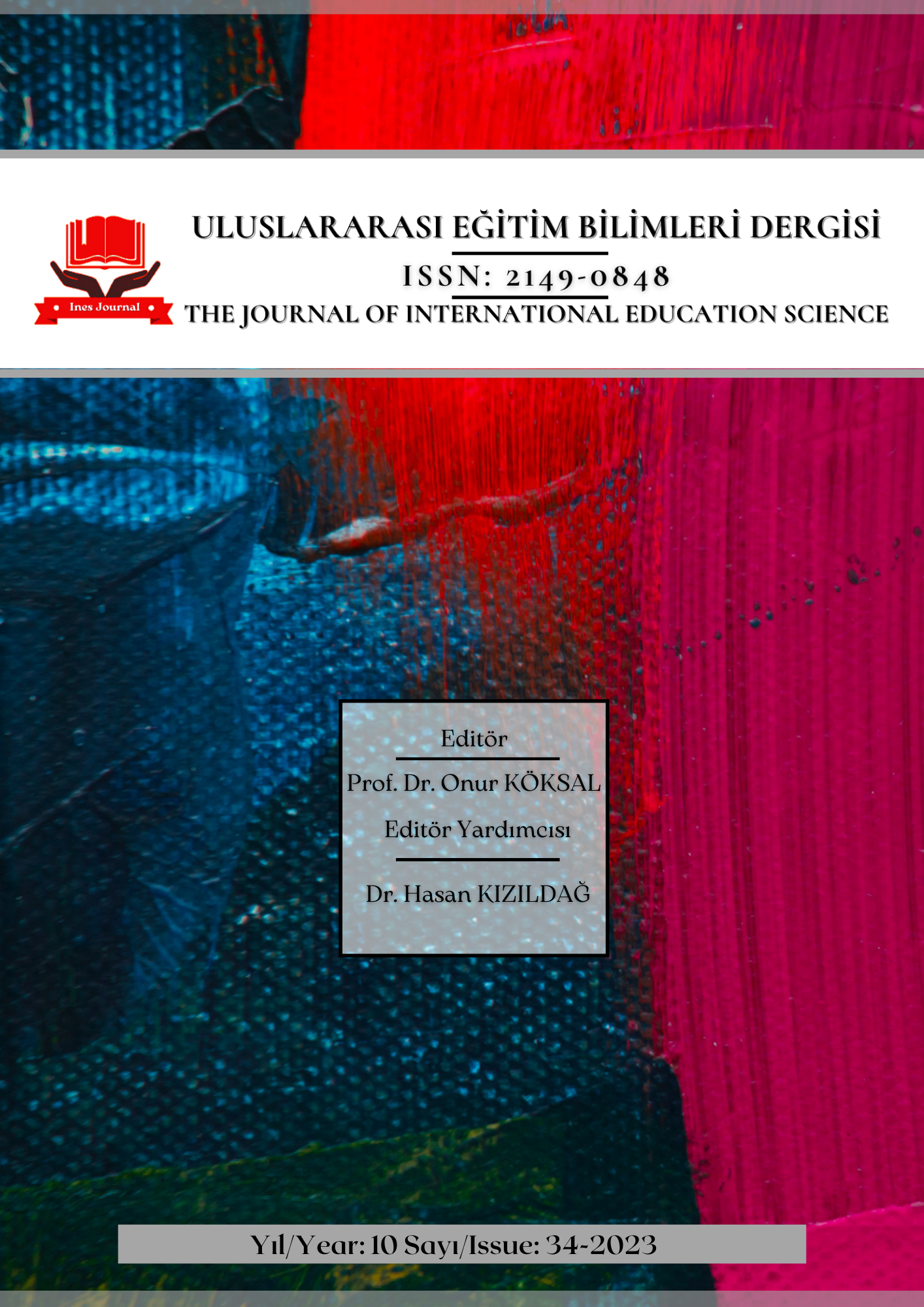Author :
Abstract
Araştırmada, otizmli çocuğa sahip ebeveynlerin dini başaçıkma ve umut düzeyleri arasında anlamlı bir ilişkinin olup olmadığı ve dini danışmanlığın etkili olup olmayacağının belirlenmesi amaçlanmıştır. Demografik bilgi formu, dini başaçıkma ve sürekli umut ölçeğinin kullanıldığı araştırma, Samsun’da pandemi döneminde online olarak çocukları özel eğitim uygulama okuluna devam eden ve engelli sivil toplum kuruluşlarına üye olan ve otizmli çocuğu bulunan toplam 68 ebeveyn ile basit tesadüfi örnekleme yoluyla seçilen örneklem grubu üzerinde gerçekleştirilmiştir. Veriler IBM SPSS V23 ile analiz edilmiş, ebeveynlerin dini başaçıkma ve umut düzeyleri arasındaki ilişkinin incelenmesi sonucunda pozitif dini başa çıkma puanı ile alternatif yollar düşüncesi, eyleyici düşünce, sürekli umut toplam puanı arasında pozitif yönlü zayıf düzey anlamlı bir ilişki elde edilmiştir. Yani otizmli çocuğa sahip ebeveynlerin dini başaçıkma ve umut düzeyleri arasında pozitif yönlü ve anlamlı bir ilişkinin olduğu tespit edilmiştir. Ayrıca ebeveynlerin umut düzeylerinin alternatif yollar düşüncesi puanı ortanca değeri otizmli çocuğun tıbbi tanı türüne göre farklılık göstermektedir. Farklılık A tipik otizm grubu alternatif yollar düşüncesi ortanca puanının yaygın gelişimsel bozukluk grubuna göre yüksek elde edilmesinden kaynaklandığı anlaşılmaktadır. Alternatif yollar düşüncesi, eyleyici düşünce ve sürekli umut toplam puanı diğer değişkenlere göre yani ebeveynlerin yaşına, eğitim düzeyine, çocuk sayısına, çocuklarının otizmden etkilenme derecesine ve otizmli çocuğun yaşına ve danışmanlık hizmeti alıp almadıklarına göre farklılık göstermemektedir. Ebeveynlerin dini başaçıkma düzeyleri, pozitif dini başaçıkma ve negatif dini başaçıkma ölçek puanları ebeveynin yaşı, eğitim durumuna, çocuğun tıbbi tanılaması sonucu otizm türüne, çocuğun otizmden etkilenme derecesine, toplam çocuk sayısına, otizmli çocuğun yaşına ve herhangi bir danışmanlık hizmeti alınması durumuna göre farklılık göstermemektedir.
Keywords
Abstract
In the study, it was aimed to determine whether there is a meaningful relationship between religious coping and hope levels of parents with children with autism and whether religious counseling would be effective. The study, using demographic information form, religious coping and hope scale, was selected by simple random sampling, with a total of 68 parents with autistic children, whose children attended special education practice schools in Samsun during the pandemic period, and a total of 68 parents with autistic children. It was carried out on the sample group. The data were analyzed with IBM SPSS V23, and as a result of examining the relationship between the parents' religious coping and hope levels, a positive weak level significant relationship was obtained between the positive religious coping score and the idea of alternative ways, agency thinking, and continuous hope total score. In other words, it was found that there is a positive and significant relationship between the religious coping and hope levels of parents with children with autism. In addition, the median value of the parents' hope levels for the idea of alternative ways score varies according to the type of medical diagnosis of the child with autism. It is understood that the difference A typical autism group is due to the fact that the median score of the idea of alternative paths is higher than the pervasive developmental disorder group. The total score of alternative ways thought, acting thinking and continuous hope does not differ according to other variables, namely, the age of the parents, the level of education, the number of children, the degree of their children being affected by autism, the age of the child with autism and whether they receive counseling services. Parents' level of religious coping, positive religious coping and negative religious coping scale scores do not differ according to the age of the parent, educational status, the type of autism as a result of the medical diagnosis of the child, the degree of the child being affected by autism, the total number of children, the age of the child with autism and any counseling service.
